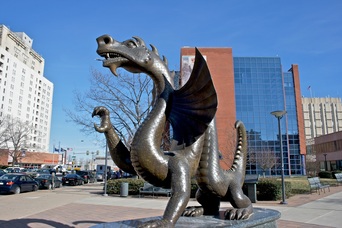Students now have the option of pursuing combined or accelerated degree programs that let them work concurrently toward their bachelor’s and master’s degrees in a condensed timeframe, usually only five years.
The details of accelerated degree programs vary depending on the subject and the university offering them, but generally speaking they combine or expedite courses and lesson plans in order to condense the time it takes to complete the advanced degree. Often students will have a regular undergraduate course load until their junior or senior year, at which point they will begin taking on coursework that goes toward their master’s degree. This might mean taking special classes that provide both graduate and undergraduate credit, or simply taking additional graduate classes depending on the program. Some programs may also require taking classes over summer or winter break.
At many schools, these degree programs have special requirements for admittance, such as GPA requirements, AP credits, letters of recommendation, and others. Depending on the program, students may have to apply before or during their undergraduate studies.
What are the Advantages of Combined Degree Programs?
In addition to the obvious time these degree programs save, they also provide some other benefits to students. Because of the combined or shorter nature of many courses, combined and accelerated degree courses are often much less expensive in the end than taking the traditional route of a 4-year bachelor’s degree followed by a 2-year master’s program. They also provide students with the opportunity to enter the workforce with all the benefits of a master’s degree without losing the time and expenses that two years of graduate study would otherwise cost them.
What are the Disadvantages of Combined Degree Programs?
Combined or accelerated master’s degree programs are relatively quick, but they’re by no means easy. Students embarking on a path with a combined program should expect to have a much heavier course load than most of their peers, and a lot less free time as well. Students who want to have a typical “college experience” or pursue extracurricular activities outside of their degree program might want to consider taking the extra time for a more traditional approach.
These programs could also prove to be disadvantageous if a student changes their mind about their career goals, or decides they’d like to pursue a graduate degree in a different or more specialized field at a different school. These programs require a lot of commitment up front, and not all students will be comfortable with that.
What are Common Fields for Combined Degree Programs?
Accelerated programs are commonly available for either combined B.A./M.A. degrees or combined B.S./M.S. degrees. Popular fields of study include Nursing, Engineering, Business (MBA), Law, Medicine, Journalism and Communications, and many others. Here are some examples of combined degree programs at universities around the country:
| Combined BS/MS Degree Program at Drexel University – Drexel University in Philadelphia offers its top engineering students the opportunity to earn their master’s degrees in five years, usually the time it takes for just a bachelor’s. The program combines undergraduate studies with the practical work experience provided by their master’s programs. Students must have a GPA of at least 3.0, between 90 and 120 undergraduate credits in one of the school’s engineering programs, and maintain a 3.2 GPA to remain in the program. Learn more. Combined BA/MA Degrees at American University – |
BA/MA and BA/MS Programs at Boston University – Boston University in Boston offers dual degree programs in arts and sciences that allow students and their advisors to craft custom plans of study and bring greater depth to their chosen discipline. Students entering their junior year pursue undergraduate and graduate courses concurrently, with emphasis placed on receiving the full experience of both bachelor’s and master’s degrees. Learn more.
Accelerated B.A./Master’s Programs at Clark University – Clark University in Worcester, Massachusetts offers over a dozen 5-year programs from biochemistry and molecular biology to teaching to international development and social change. Each year, 25% of their graduating seniors participate in one of Clark's accelerated programs. If you qualify for the program, you can earn both a bachelor's and master's degree with the fifth year tuition-free! Learn more.
Combined BA/BS-MA/MS Programs at Fairleigh Dickinson University – Fairleigh Dickinson University in New Jersey has numerous 5-year programs for their students. At their Florham campus some of the programs offered are: Business Administration BS-Taxation MS, Computer Science BS-MS and Hotel and Restaurant Management BS - Hospitality Management Studies MS. At their Metropolitan campus programs include Electrical Engineering BSEE-MSEE, Management BS-MBA and Sports Administration (Interdisciplinary Studies) BA - Master of Sports Administration MSA. Learn more.
Combined Bachelor’s and Master’s Degree Programs at Ithaca College – Ithaca College in Ithaca, New York offer two 5-year programs in their School of Music: one in Music Education and one in Music Education and Performance. Undergraduate students will need to apply for the master's degree, complete all application procedures, and hold a minimum GPA of 3.00. In addition, for fifteen years Ithaca College has offered a freshman-entry BS/MS program in Occupational Therapy. The program consists of 92 credits and will prepare students to sit for the National Board for Certification in Occupational Therapy (NBCOT). Learn more here and here.
Conclusion
If you’re a student eager to jump into your professional career and ready, able, and willing to take on a particularly rigorous course load, these combined degree programs may be just what you’re looking for. But deciding on that path is something that has to be done with careful thought and planning.
The professional college advisors at College Docs in Fairfield, CT can help you find the right program at the right university for you by taking into account your academic and career goals. After an initial consultation you’ll get a personalized college action planPersonalized College Action Plan including recommendations for coursework, best-fit application lists, help with financial aid, application and essay assistance, and more. Contact College Docs to learn more.



 RSS Feed
RSS Feed